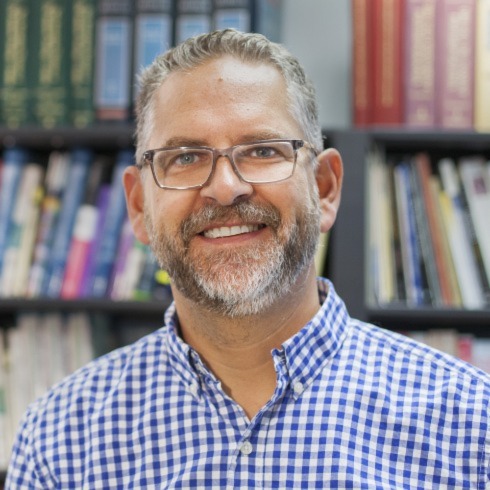
In light of recent events with elder boards making decisions on allegations of abuse by pastors, a rebroadcast on one of our more popular and requested guests, Dr. Chuck DeGroat, seemed timely. Dr. Chuck DeGroat is Professor of Counseling and Christian Spirituality and Interim D.Min. Director at Western Theological Seminary and faculty member for the Soul Care Institute.
He is an author, speaker, consultant, and therapist.
He is a Minister of Word and Sacrament in the Reformed Church in America. He pastored in Orlando and San Francisco before transitioning to training and forming pastors. His experience includes training clergy in issues of abuse and trauma, pastor and planter assessments, church consultations, and investigations of abuse among pastors and within congregations. He has been featured on The Rise and Fall of Mars Hill podcast by Mike Cosper at Christianity Today in regards to the abuse of staff by pastor Marc Driscoll.
Chuck has been married to Sara for 27 years, and has two adult daughters.
He is the author of:
- When Narcissism Comes to Church: Healing Your Community from Emotional and Spiritual Abuse
- Leaving Egypt: Finding God in Wilderness Places
- Wholeheartedness: Busyness, Exhaustion and Healing the Divided Self,
- Toughest People to Love: How to Understand, Lead, and Love the Difficult People in Your Life — Including Yourself.
Follow Dr. DeGroat’s work on Instagram, Facebook, and Twitter
*Several books are mentioned in this podcast that help in learning to discern the patterns of pastors who bully, intimidate and coerce their staff when it is not easy to see from the outside and is not something everyone on staff experiences.
(If you are on a church elder board, or a church hiring committee, I highly recommend these books):
- A Church Called TOV: Forming a Goodness Culture That Resists Abuses of Power and Promotes Healing by Dr. Scot McKnight and Laura Barringer
- Something’s Not Right: Decoding the Hidden Tactics of Abuse and Freeing Yourself From Its Power by Wade Mullen
- Redeeming Power: Understanding Authority and Abuse in the Church by Dr. Diane Langberg
The A World of Difference Podcast is brought to you in partnership with Missio Alliance.
Become a patron of this podcast, and enjoy free merch. Join other patrons of this podcast at Patreon.
Stay In Touch: Connect on Facebook and Instagram with thoughts, questions, and feedback. Rate, review and share this podcast with anyone that would love to listen. Find Us Online: @aworldof.difference on Instagram and A World of Difference on Facebook, on Twitter at @loriadbr & on Clubhouse @loriadbr.
https://linktr.ee/aworldofdifference or loriadamsbrown.com
Interested in one-on-one or group coaching on how to live a life that makes a difference? Check out: https://www.loriadamsbrown.com/coaching

Missio Alliance Comment Policy
The Missio Alliance Writing Collectives exist as a ministry of writing to resource theological practitioners for mission. From our Leading Voices to our regular Writing Team and those invited to publish with us as Community Voices, we are creating a space for thoughtful engagement of critical issues and questions facing the North American Church in God’s mission. This sort of thoughtful engagement is something that we seek to engender not only in our publishing, but in conversations that unfold as a result in the comment section of our articles.
Unfortunately, because of the relational distance introduced by online communication, “thoughtful engagement” and “comment sections” seldom go hand in hand. At the same time, censorship of comments by those who disagree with points made by authors, whose anger or limited perspective taints their words, or who simply feel the need to express their own opinion on a topic without any meaningful engagement with the article or comment in question can mask an important window into the true state of Christian discourse. As such, Missio Alliance sets forth the following suggestions for those who wish to engage in conversation around our writing:
1. Seek to understand the author’s intent.
If you disagree with something the an author said, consider framing your response as, “I hear you as saying _________. Am I understanding you correctly? If so, here’s why I disagree. _____________.
2. Seek to make your own voice heard.
We deeply desire and value the voice and perspective of our readers. However you may react to an article we publish or a fellow commenter, we encourage you to set forth that reaction is the most constructive way possible. Use your voice and perspective to move conversation forward rather than shut it down.
3. Share your story.
One of our favorite tenants is that “an enemy is someone whose story we haven’t heard.” Very often disagreements and rants are the result of people talking past rather than to one another. Everyone’s perspective is intimately bound up with their own stories – their contexts and experiences. We encourage you to couch your comments in whatever aspect of your own story might help others understand where you are coming from.
In view of those suggestions for shaping conversation on our site and in an effort to curate a hospitable space of open conversation, Missio Alliance may delete comments and/or ban users who show no regard for constructive engagement, especially those whose comments are easily construed as trolling, threatening, or abusive.